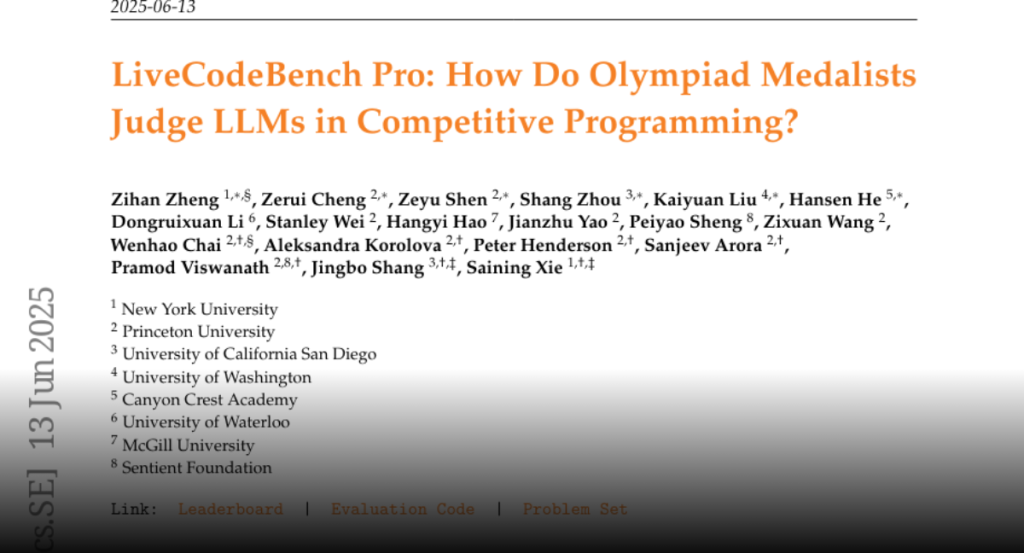LLMs perform well on implementation-heavy competitive programming problems but struggle with nuanced algorithmic reasoning, as highlighted by LiveCodeBench Pro.
Recent reports claim that large language models (LLMs) now outperform elite
humans in competitive programming. Drawing on knowledge from a group of
medalists in international algorithmic contests, we revisit this claim,
examining how LLMs differ from human experts and where limitations still
remain. We introduce LiveCodeBench Pro, a benchmark composed of problems from
Codeforces, ICPC, and IOI that are continuously updated to reduce the
likelihood of data contamination. A team of Olympiad medalists annotates every
problem for algorithmic categories and conducts a line-by-line analysis of
failed model-generated submissions. Using this new data and benchmark, we find
that frontier models still have significant limitations: without external
tools, the best model achieves only 53% pass@1 on medium-difficulty problems
and 0% on hard problems, domains where expert humans still excel. We also find
that LLMs succeed at implementation-heavy problems but struggle with nuanced
algorithmic reasoning and complex case analysis, often generating confidently
incorrect justifications. High performance appears largely driven by
implementation precision and tool augmentation, not superior reasoning.
LiveCodeBench Pro thus highlights the significant gap to human grandmaster
levels, while offering fine-grained diagnostics to steer future improvements in
code-centric LLM reasoning.

